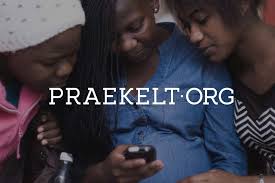Praekelt.org
See the following -
Dedicated Engineering Team in South Africa Deploys Open Source Tools, Save Lives
 In 2006, a groundbreaking TED talk used statistics to reveal surprising insights about the developing world, including how many people in South Africa have HIV despite free and available anti-retroviral drugs. Gustav Praekelt, founder of Praekelt.org, heard this TED talk and began tenaciously calling a local hospital to convince them to start an SMS program that would promote anti-retrovirals. The program that resulted from those calls became txtAlert—a successful and widely recognized mobile health program that dramatically improves medical appointment adherence and creates a free channel for patients to communicate with the hospital...
In 2006, a groundbreaking TED talk used statistics to reveal surprising insights about the developing world, including how many people in South Africa have HIV despite free and available anti-retroviral drugs. Gustav Praekelt, founder of Praekelt.org, heard this TED talk and began tenaciously calling a local hospital to convince them to start an SMS program that would promote anti-retrovirals. The program that resulted from those calls became txtAlert—a successful and widely recognized mobile health program that dramatically improves medical appointment adherence and creates a free channel for patients to communicate with the hospital...
- Login to post comments
How Praekelt.org and Open Source Provide Critical Services to Enable Social Change
 In Eastern and Southern Africa, women are still dying unnecessarily during the basic, natural act of giving life. According to Unicef, “In 2010, close to 58,000 women lost their lives during pregnancy and childbirth, accounting for more than one fifth of all such deaths in the world.” Gustav Praekelt, founder of the South African design and development firm Praekelt.com, was deeply affected by the high maternal mortality rate in his country and realized in 2007 that open source software and mobile phones could help provide critical information and services to combat poverty and maternal mortality rates -- among other social issues -- across the continent and potentially around the world.
In Eastern and Southern Africa, women are still dying unnecessarily during the basic, natural act of giving life. According to Unicef, “In 2010, close to 58,000 women lost their lives during pregnancy and childbirth, accounting for more than one fifth of all such deaths in the world.” Gustav Praekelt, founder of the South African design and development firm Praekelt.com, was deeply affected by the high maternal mortality rate in his country and realized in 2007 that open source software and mobile phones could help provide critical information and services to combat poverty and maternal mortality rates -- among other social issues -- across the continent and potentially around the world.
- Login to post comments
Praekelt.org Advances Open Mobile Technologies for Connected Health in Africa and Around the World
 Praekelt.org, which works with governments, NGOs and social enterprises to design, develop, and implement open digital technologies for social change, today is announcing a variety of connected health news and milestones that are improving the lives of millions of people across Africa and influencing technology development in the United States and around the world. Barriers to basic healthcare services and information increase AIDS/HIV and maternal mortality rates in low- and middle-income countries...
Praekelt.org, which works with governments, NGOs and social enterprises to design, develop, and implement open digital technologies for social change, today is announcing a variety of connected health news and milestones that are improving the lives of millions of people across Africa and influencing technology development in the United States and around the world. Barriers to basic healthcare services and information increase AIDS/HIV and maternal mortality rates in low- and middle-income countries...
- Login to post comments